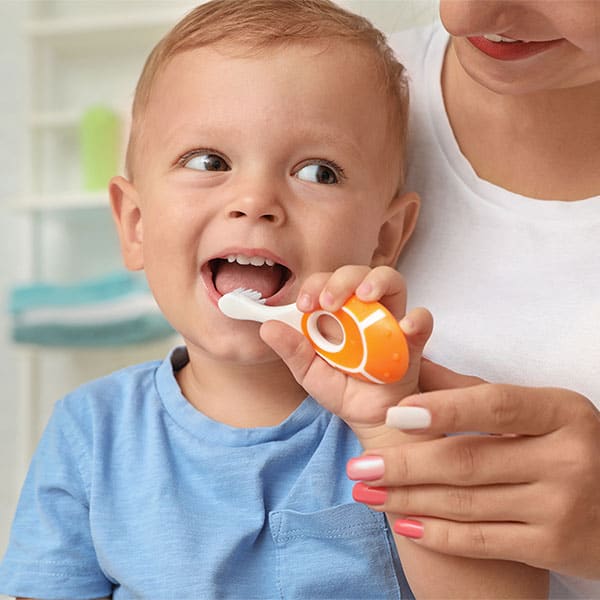Many breastfeeding moms worry about whether their baby has a lip tie or tongue tie, and if so, how to treat it. The short answer is that you can’t tell based on appearance alone. These ties must be diagnosed by an experienced medical professional such as your pediatric dentist in Beverly Hills. However, there are some common signs that may help you determine whether your baby might have one of these ties.
What’s a Tongue Tie?
A tongue-tie, also known as ankyloglossia (phew, what a mouthful!), is a condition in which a child’s tongue is attached too tightly at its base. Essentially, a tongue tie occurs when a baby’s lingual frenulum, which is just a fancy name for the membrane that connects the tongue to the bottom of the mouth, is too thick, too short, or malformed. This makes it difficult for the child to move his or her tongue freely and often causes issues with breastfeeding and speaking.
What’s a Lip Tie?
A lip tie is a medical condition that occurs when there isn’t enough space between your baby’s upper and lower gums. This is usually due to one of two reasons: The labial frenulum may be attached too closely to one side of the upper gum. Or it can also be because of that crazy word — ankyloglossia — which is when their frenulum (which connects their tongue base to bottom of the mouth) is too short. A lip tie can limit movement and make feeding difficult.
Signs of Tongue Tie or Lip Tie
Even though both of these conditions require a proper medical diagnosis by your pediatrician or your pediatric dentist in Beverly Hills, there are a few telltale signs to keep an eye out for such as:
- Difficulty breastfeeding
- Difficulty breathing while feeding
- A noticeable clicking noise while nursing
- Colic
- Pain during breastfeeding
- Mastitis
While these signs and symptoms may not guarantee a lip or tongue tie, it’s always best to have your baby checked.
How a Lip or Tongue Tie Can Affect Kids
Besides having trouble during feeding times, a lip tie or tongue tie can affect babies in different ways and can even have some long-term effects as they get older. Untreated lip or tongue ties can result in speech problems, sleep apnea, and problems chewing and swallowing food. Additionally, children with a lip tie or tongue tie may have a noticeable gap in the front two teeth or can have gum recession.
How Your Pediatric Dentist in Beverly Hills Can Help
Tongue and lip ties used to require surgery, but thanks to advancements in dental technology, some pediatric dentists can fix a lip or tongue tie right in their office. The procedure is called a frenectomy and can be done with a laser or surgically. Additionally, frenectomies can be done during infancy or even as an adult. The treatment itself involves the removal of small sections of the frenum to release the tension.
If you’re having trouble during feeding time, schedule an appointment at our pediatric dental office. We can check for a lip or tongue tie and recommend the best treatment for your child.





